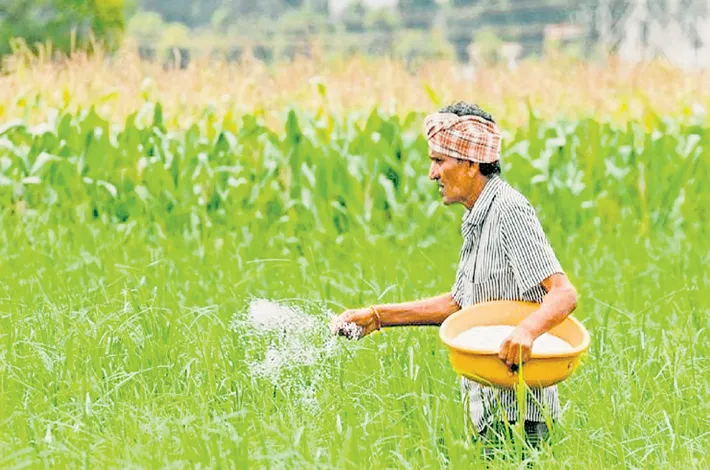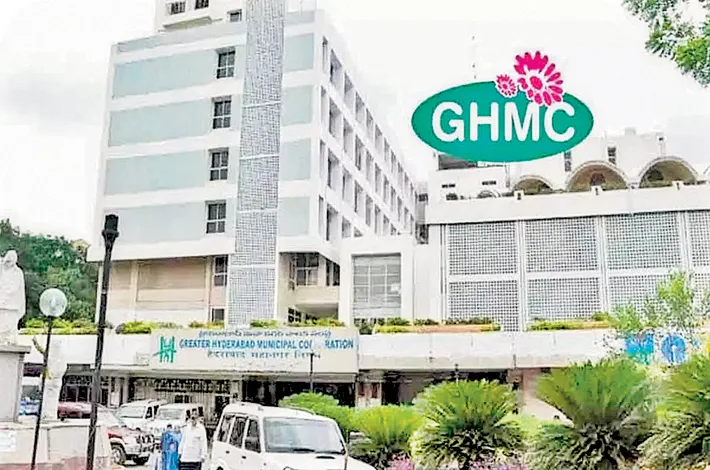Govt extends subsidy package up to Rs 3,850 cr for DAP fertiliser
02-01-2025 02:00:19 AM

metro india news I New Delhi
The government on Wednesday extended additional subsidy on di-ammonium phosphate (DAP) beyond December 31, 2024, to help maintain retail prices of this key fertiliser at Rs 1,350 per bag of 50 kg -- a move that could cost the exchequer up to Rs 3,850 crore.
Last year, the Centre announced a one-time special package on DAP at Rs 3,500 per tonne, valid from April 1, 2024, to December 31, 2024, with a financial implication of Rs 2,625 crore to keep prices under check. The package was over and above the nutrient-based subsidy (NBS) fixed by the government on non-urea nutrients.
On Wednesday, the Union Cabinet -- chaired by Prime Minister Narendra Modi -- approved the proposal for an extension of a one-time special package on DAP at the rate of Rs 3,500 per tonne for the period from January 1, 2025, till further orders.
The decision has been taken to "ensure sustainable availability of DAP at affordable prices to the farmers", an official statement said.
The special package on DAP will be provided over and above the approved NBS (nutrient-based subsidy) to ensure the smooth availability of DAP fertiliser to the farmers at an affordable price.
Briefing media, Information and Broadcasting (I&B) Minister Ashwini Vaishnaw informed that farmers will continue to get DAP at Rs 1,350 per bag and the extra burden will be borne by the central government. "One-time special package up to Rs 3,850 crore is approved for DAP fertiliser," he added.
He pointed out that the global market prices of DAP are volatile on geopolitical concerns. The Centre provides 28 grades of P&K (phosphatic and potassic) fertilisers to farmers at subsidised prices through fertiliser manufacturers/importers. The subsidy on P&K fertilisers is governed by the NBS Scheme, with effect from April 1, 2010.
"Continuing top most priority in keeping farmers' welfare in firm focus, Government of India has extended a massive relief to farmers in keeping the price of Di-Ammonium Phosphate (DAP) fertiliser unchanged," the statement said. In spite of geopolitical constraints and volatility of global market conditions, the government said it has kept its commitment towards a farmer-friendly approach by ensuring the availability of DAP to farmers at affordable prices for Kharif and Rabi 2024-25.
The Modi government has provided Rs 11.9 lakh crore fertiliser subsidy during the 2014-24 period, which is more than double the subsidy of Rs 5.5 lakh crore for the 2004-14 period.
Government's Decision to Reduce DAP Urea Prices: A Boon for Farmers
In a significant move, the Indian government has announced a reduction in the prices of DAP (Diammonium Phosphate) and urea, two essential fertilizers for farmers. This decision is expected to bring relief to millions of farmers across the country, who have been struggling with high input costs and declining profitability.
The government's decision to reduce DAP urea prices is a welcome step, as it will directly benefit farmers by reducing their expenditure on fertilizers. DAP and urea are critical inputs for crop production, and their high prices had become a major concern for farmers. The price reduction will not only ease the financial burden on farmers but also encourage them to use these essential fertilizers, leading to improved crop yields and better agricultural productivity.
The impact of the price reduction will be felt across various sectors of agriculture. For instance, farmers cultivating crops like wheat, rice, and sugarcane, which require high amounts of DAP and urea, will benefit significantly from the price reduction. Similarly, farmers growing pulses and oilseeds, which are critical for the country's food security, will also gain from the reduced fertilizer prices.
The government's decision is also expected to have a positive impact on the country's agricultural sector as a whole. By reducing the prices of essential fertilizers, the government is sending a clear signal that it is committed to supporting farmers and promoting agricultural growth.
This move is likely to boost farmers' confidence and encourage them to invest in their farms, leading to increased agricultural production and productivity. Furthermore, the price reduction will also help to reduce the fiscal burden on the government. The subsidy bill on fertilizers is a significant component of the government's expenditure, and reducing the prices of DAP and urea will help to bring down this burden.
This, in turn, will enable the government to allocate more resources to other critical sectors, such as education, healthcare, and infrastructure development. In conclusion, the Indian government's decision to reduce DAP urea prices is a significant step towards supporting farmers and promoting agricultural growth. By reducing the prices of essential fertilizers, the government is not only easing the financial burden on farmers but also encouraging them to use these critical inputs, leading to improved crop yields and better agricultural productivity. This move is likely to have a positive impact on the country's agricultural sector, and the government deserves appreciation for its efforts.








